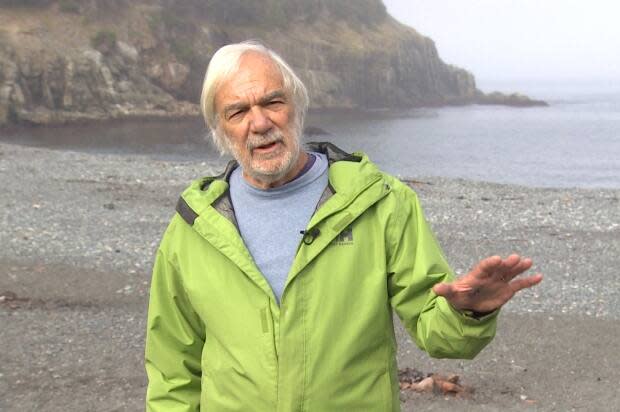About 100 dead turrs, with breasts ripped out, thrown into ocean near Flatrock

The recent discovery of about 100 dead and discarded turrs in Flatrock has one seabird biologist concerned about best hunting practice and lack of regulation.
Bill Montevecchi told CBC Radio's The Broadcast images were sent to him after a hiker stumbled upon the flock of dead birds floating in the ocean and was worried there may have been a "catastrophe."
But, he said, the best he could decipher from the images was that the birds were killed by hunters, and only their breasts had been taken while the carcasses were left behind to waste.
"I get concerned. If somebody is going to shoot this magnificent bird, and cherry pick out the prime cut and then chuck the bird away, you know, you killed a bird that is quite fantastic," he said.
"Eat it. Use it."

Montevecchi said many hunters are agreeing with him that the scene in Flatrock this week was "cheating," while others have been on his case accusing him of wanting to halt the hunt.
He said that isn't the case — that he supports the hunt, but doesn't support the overkill or wastefulness.
Montevecchi acknowledged the fact that the possession limit is 40 birds, and that the large culling in Flatrock could have come from more than one person that day, meaning a group of hunters would have been within their limit.
Even still, he said buying or selling migratory game birds — such as turr — and the fact that there were about 100 dead in the water is concerning.
"If somebody is breasting birds, and there's more than 100, I really hope those aren't being sold. But, I have no idea," he said.
"Let's assume it's from three guys, they're not over their possession limit, and they're going to eat the birds. But, they still chucked an awful lot of it away. I just have trouble resolving it."
Bigger problems
But Montevecchi said the bigger problem is with the regulators, such as Environment Canada, which he says aren't doing their jobs.
"It's like they're hiding under a rock or something," he said. "And don't take my word for it. Ask any hunter, look on social media, they know."
He said the RCMP can also enforce federal regulations, and game wardens in Newfoundland and Labrador can do the same if asked.
As for Environment Canada, he said it's turning a blind eye to the problem and should be accountable for the population of turr.
"We know in Witless Bay the murres are having a really tough time, and those are the common murres. Mostly what gets hunted here and the thick-billed murres from the Arctic," he said.
"[The] Canadian Wildlife Service and Environment Canada says those populations are OK, but I think there's a lot of uncertainty in those estimates."

